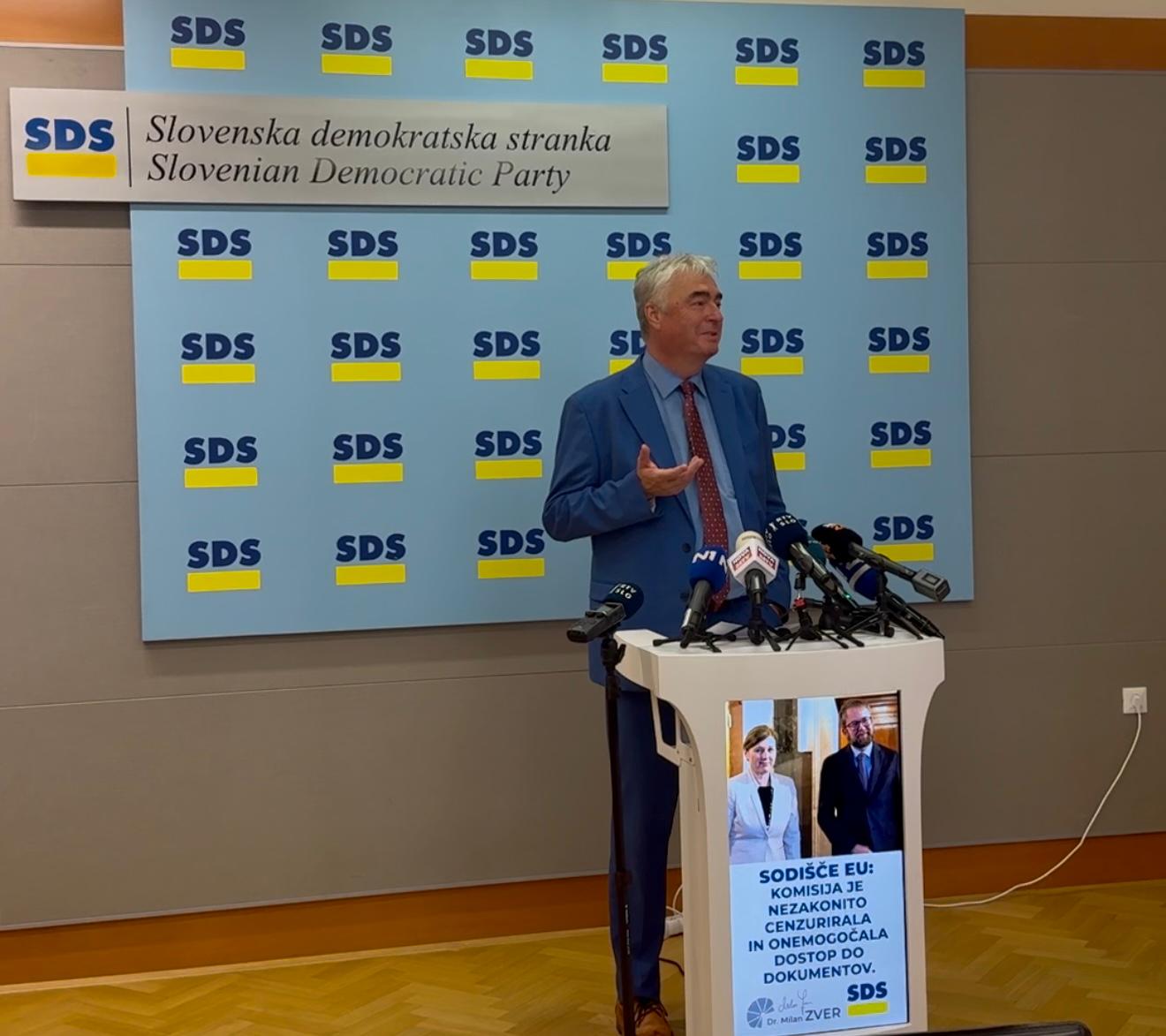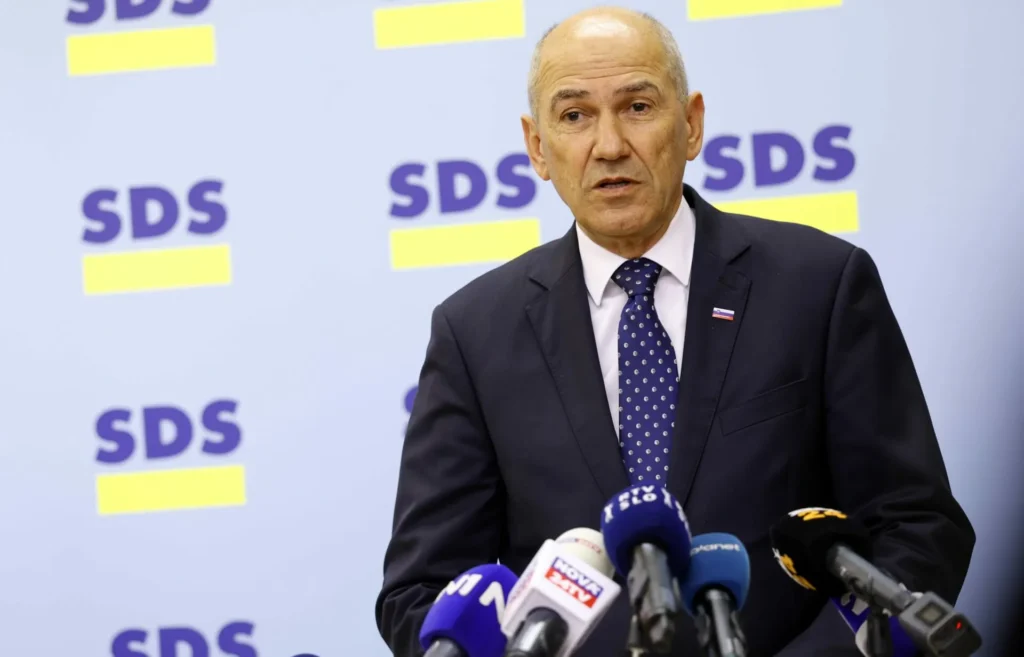The General Court of the EU’s decision requiring the European Commission to disclose a hidden paragraph in the reminder, entitled “What we want from Accetto”, has triggered reactions in Slovenia and Brussels. MEP Zver and the President of the Slovenian Democratic Party (Slovenska demokratska stranka – SDS), Janez Janša, spoke about this at a press conference in Ljubljana.
The General Court of the European Union has partially upheld a lawsuit brought by MEP Milan Zver (Slovenian Democratic Party – SDS/European People’s Party – EPP) against the European Commission, which refused to disclose documents related to the visit of former Vice-President Věra Jourová to the Constitutional Court of the Republic of Slovenia in March 2023.
MEP Milan Zver described the Court’s decision as a “great victory”, not only for himself, but also for the European Union. He stressed that this is a precedent-setting case, as it is the first time that a Member of the European Parliament has succeeded in a lawsuit against the European Commission. “Apparently, some Commissioners and officials thought that they could do whatever they wanted and that they did not have to explain to the public certain processes that were going on behind the scenes,” Zver added.

According to him, Jourová “directly intervened in the legislative process and the decision-making process at the Constitutional Court of the Republic of Slovenia,” which is evident from the documents, which run into more than a hundred pages. Zver summarised that the main purpose of her visit was to influence the decision on the Radio-Television Slovenia Act, which had “serious consequences” for the Slovenian legal order.
Janša: “A serious disgrace for the European Commission”
SDS President Janez Janša described the ruling as a “serious disgrace” for the European Commission. “Firstly, this is a precedent-setting case of a Member of the European Parliament winning a lawsuit against the European Commission. The MEP has relatively limited resources, while the European Commission is a body with a huge budget, services and unlimited resources,” he said.
“Vera Jourová has been caught doing the wrong thing – doing something that we know the consequences of. It is clear to everyone that what was blacked out on the document would not have been blacked out if it had not been controversial,” Janša said. He added that Jourová’s actions contravened the Lisbon Treaty, which defines the European Commission as the guardian of the legal framework, not a political body. “The European Court of Justice’s ruling puts the Commission back in its own framework,” he explained.
Janša pointed out that the Constitutional Court of the Republic of Slovenia, which is supposed to be the guardian of the legal order, was called into question by Jourová’s visit. “The President of the Constitutional Court, who accepted Jourová as the ‘context of the conversation’, is called into question. This has never happened in any other EU Member State,” he stressed.
He also pointed out that the procedure regarding the Radio-Television Slovenia Act at the Constitutional Court had not yet been completed. “After Jourová’s visit, the Constitutional Court, which had previously suspended the RTVS law, lifted the suspension more than two years ago. At that time, they said they would rule on the law as a matter of priority, but this has been going on for more than two months,” he critically pointed out.
He also noted that the judgment is extremely important for Slovenia, as it explains the absurd situation when a Commissioner comes to the Constitutional Court of a sovereign Member State with a piece of paper entitled “what do we want from them”. “There is no EU institution that can come to the Constitutional Court with such a note,” he added.
European Commission response
On Wednesday, Brussels declined to comment further on the General Court’s ruling. European Commission spokesman Stefan de Keersmaecker said: “We will not comment on the judgment at this time. As always, we will study the judgment of the General Court carefully in order to decide on the next steps.” He stressed that the principles of access to information and transparency are very important to the Commission, which receives around 700 requests for access to documents a year and grants full or partial access in 80 percent of cases, reports the Slovenian Press Agency (STA).
The importance of the ruling for Slovenia and the European Union
The ruling of the General Court of the EU is not only resonating in Slovenia, but has wider implications for the European Union as a whole. According to Zver and Janša, it reveals the lack of transparency in the European Commission’s work and sets limits to its political ambitions. At the same time, it raises questions about the independence of Slovenian institutions, in particular the Constitutional Court, and how external interventions can influence domestic legal processes. Zver and Janša have announced that they will continue to press for the disclosure of additional documents, as the ruling did not fully comply with Zver’s request. Meanwhile, in Slovenia, it remains an open question when the Constitutional Court will finally rule on the constitutionality of the Radio-Television Slovenia Act.
A. H.


